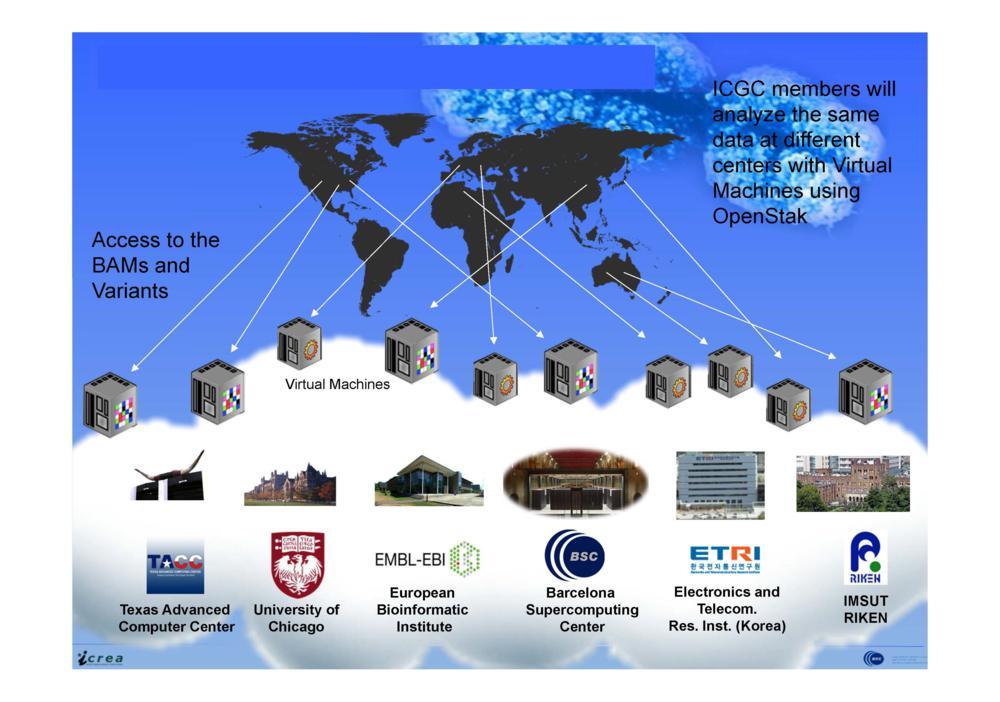The Pan-Cancer project aims to bring together and analyse four thousand genomes from patients all around the world with different types of tumour so as to identify and discover the causes of the tumour processes.
Mateo Valero, Director, Barcelona Supercomputing Center, and David Torrents, Leader of the BSC-CNS Computational Genome Group.
In the context of an international collaboration for the study of the cancer genome in 2015, the Barcelona Supercomputing Center (BSC-CNS) is involved in an orthogonal study of tumours, aimed at contributing to the identification of the molecular and genetic bases of carcinogenic processes. This initiative represents a great challenge in both the scientific and the technical and computational fields. It lets us explore the best way to face up to the demands that we will soon be feeling from “big data”, including the huge amount of data coming from biomedical research.
This study aims to analyse the genomes of two thousand cancer patients, using what is largely a computational approach. The synchronisation of six centres around the world (among them BSC-CNS) for the transfer of up to two thousand pairs of genomes and their later analysis has been taken as a representative pilot study for the challenges that are rapidly approaching. This study will allow us a better understanding of how common carcinogenic processes function in many types of tumour. This is the first step towards the development of new therapies, both general and more customised.
During 2014, sequencing of the genomes will be completed and their analysis will begin: the interpretation of the results obtained is forecast for 2015.
ECONOMIC AND TECHNICAL DATA
- The project began in 2013 and will end early in 2015
- It involves more than one hundred researchers worldwide
- It is coordinated by the Ontario Institute for Cancer Research, in Canada, and the BSC-CNS is one of the six centres participating in the analysis, in conjunction with the Texas Advanced Computer Center and the University of Chicago, in the United States; the European Bioinformatics Institute in the United Kingdom; the Electronics and Telecommunications Research Institute in Korea, and the RIKEN research institute in collaboration with the Institute of Medical Science - University of Tokyo in Japan.

